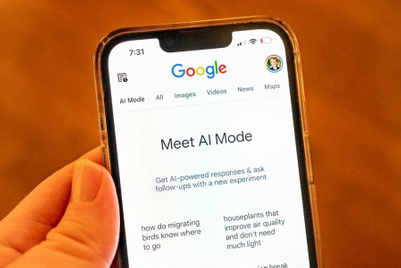
From a financial perspective, there are plenty of examples of big mergers that have gone awry - AOL and Time Warner, for example, or Ford and Jaguar. But what are the implications of these mega-deals for the brands, marketers and agencies involved?
Industry experts suggest mega-mergers are usually ‘Darwinian’, with the fittest and most efficient companies eating up the less efficient. Similarly, the strongest brands survive, and the weaker ones that don’t fit the new corporate direction are killed off.
Depending how you look at it, mergers carry the chance, or risk, of reducing competition, otherwise there wouldn’t be the various regulatory bodies required to approve them. Tim Riches, chief growth officer, Asia FutureBrand, says competitiveness is a market-by-market issue in the sense that merged companies may be better equipped to enter new markets and compete effectively where they previously could not.
Mergers are financially motivated first and foremost and often result in one of the two cultures slowly receding. Craig Briggs, MD at Brandimage Asia says: “Cost savings are always a goal in such transactions and brands can disappear or be sold yet again. We’ve certainly seen companies like Unilever and Procter & Gamble consolidating, selling off and even retiring brands, even well before the recession. With mergers, this scrutiny only increases,” he says.
On a positive note, Briggs adds: “Post-merger, some brands are given a new life, new legs and experience better management, better resonance with consumers and better sales.”
He points to Tommy Hilfiger as an interesting case. It was bought by a fashion group, floundered, then revived when Hilfiger bought the brand back and took it private. A merger that should result in some new life, he predicts, is the Kirin/Suntory tie-up, which would create a billion-dollar advertiser.
So what happens to marketing spend and agencies after a merger? The financial rationale for these big deals typically mean that spend ends up being reduced. Jean-Paul Burge, CEO of BBDO/Proximity Singapore, says: “For agencies there can be an upside for the retained agency in terms of new corporate work and spend. But generally someone loses.”
James Chadwick, leader business development at Mindshare, says mergers often result in an increased number of pitches “It’s the survival of the fittest,” he says. “It’s the same for the agencies involved, with the ‘fittest’ agencies, which have the strongest relationships with their respective clients, gaining a tastier slice of the bigger pie.”
Unfortunately, as far as the consumer goes, there’s no real benefit in mega-mergers. Briggs concludes: “We will never hear a consumer say ‘Thank goodness that Cadbury was taken over by Kraft - my chocolate will be even better than before.’ Consumers are inherently distrusting of big business and takeovers. There is no obvious benefit and such activity is best discussed in the financial pages, not in the supermarket aisle.”
Got a view?
Email [email protected]
This article was originally published in 8 October 2009 issue of Media.




.jpg&h=334&w=500&q=100&v=20250320&c=1)
.jpg&h=334&w=500&q=100&v=20250320&c=1)
.jpg&h=334&w=500&q=100&v=20250320&c=1)
.jpg&h=334&w=500&q=100&v=20250320&c=1)
.jpg&h=334&w=500&q=100&v=20250320&c=1)







.png&h=268&w=401&q=100&v=20250320&c=1)
.jpg&h=268&w=401&q=100&v=20250320&c=1)
.jpg&h=268&w=401&q=100&v=20250320&c=1)
